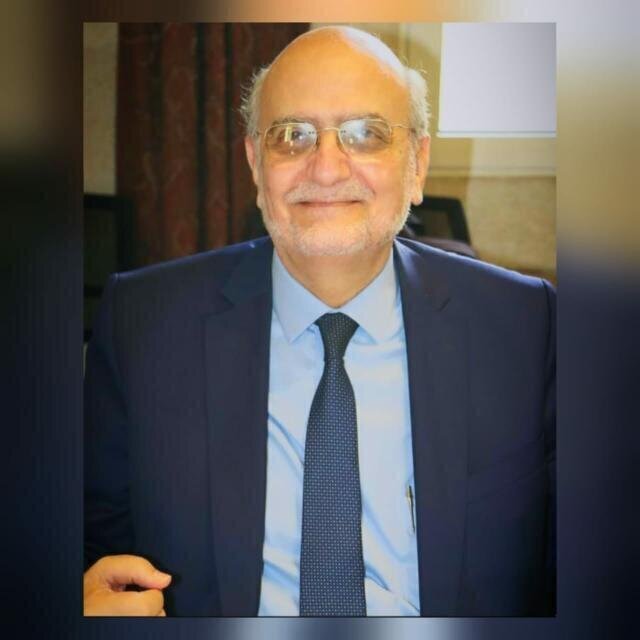Interfaith Harmony
Dr. Michel E. Abs
Secretary General of the Middle East Council of Churches
Today begins the International Week of Interfaith Harmony, which is credited for its initiation to His Majesty King Abdullah II, King of Jordan, at the United Nations in 2010, with the aim of promoting cultural peace and renunciation of violence.
The General Assembly of the United Nations adopted and approved this proposal and designated the first week of February as the International Week of Interfaith Harmony, blending in it the promotion of religious and ethnic conflicts as well as requesting that all governments and NGOs celebrate it in various ways by initiating activities as well as programs that would help achieve harmony in a world in which interreligious as well as interethnic conflicts abound.
The United Nations also considered that dialogue between people belonging to different religions that would lead to mutual acceptance and understanding, constitutes the cornerstone for a culture of peace at international level, as well as for harmony between adepts to different religions in the world.
Thus, this week's activities constitute attempts intended to promote harmony among people of all religious creeds and sectarian affiliations.
In this context, the UN organization asked all countries to support this week in order to spread the message of harmony through places of worship in the world, "on a voluntary basis and in accordance with their religious convictions and traditions."
We in the Middle East consider ourselves very concerned with this path due to the multiplicity of religions and sects in our region, the more so that field researchers have pointed out to the fact that our common shared history has witnessed many conflicts of a religious nature instigated amidst us by outside interventions.
Diversity, be it religious sectarian or ethnic, constitutes a fertile ground for conflicts whenever people do not have sufficient awareness and are not immunized culturally, psychologically, or even legally, in the sense of enacting laws punishing incitement based on identity affiliation.
We wrote previously, in this particular bulletin, about the common lifestyle in the Middle East, and we adopted the adage of "maturity" between the various groups that make up our national togetherness and that have coexisted among us for thousands of years.
The problem is that, when political and economic crises escalate in a given country, and external interference interferes, civil peace collapses and the country turns into a pool of blood, hence the need for immunization based mainly on dialogue and conscientization campaigns through planned educational interventions.
In this context, we consider that the International Week of Interfaith Harmony constitutes a vital, crucial and strategic necessity for our region as well as for the whole world, in the light of rising waves of international migration and unprecedented cultural mixing in history. Needless to say, that international grassroots movements constitute a pressure and a challenge to efforts deployed to spread of the culture of dialogue as well as of that of the acceptance of difference, rather welcoming it.
Humanity must be certain that religious conflict is nothing but a fit of madness, as when people fight over a matter given to them by the Creator over which they lack adequate control. Humanity must be certain that the Creator who gave us life, light, air, and water as main essentials of life, does not accept this that we do in the way we do it in His name.
The basic question confronting those roaming in religious conflicts is the following:
Are you fighting over the Creator who gave you all life on an equal basis? If you believe in Him and love Him, then what are you fighting for?
In the Middle East there are many experiences of attempts at interfaith harmony. In Lebanon, there is the Christian-Islamic National Committee for Dialogue, and the Secretary-General of the Middle East Council of Churches being one of its members, in addition to many other dialogue bodies. In Egypt, the “House of the Family” is considered a very successful model in preventing religious conflicts and it has proven its effectiveness. In Iraq as well, following its involvement in religious, sectarian and ethnic conflicts, several confederations for promoting dialogue have been instituted.
We, in the Middle East Council of Churches, are fully aware of the importance of establishing harmony between religions, and this is reflected in all our programs, as they are ecumenical, not only in the sense of the relationship between Christians, but also with non-Christians. The dimension of dialogue and understanding is present in all our programs and activities, and our institution enjoys great respect and love from the sons of our Muslim nation with whom we enjoy the best of relations.
We promote a dialogue that we call the Dialogue of Life, as we consider that working together to solve our social, value and other problems is the best dialogue, rather than just sitting at elite dialogue tables, despite the necessity of that sometimes. Our dialogue and our harmony approach reaches people, all segments of the people, wherever we work and however we deal with the social crises we are going through.
We believe that the establishment of a civil state, and the dissemination of a culture of full citizenship that embraces diversity, are the best ways to reach a stable and sustainable civil peace, and this can only be achieved through education, awareness and education.
The International Week of Interfaith Harmony is a pivotal period in the life of society, and we in the Council call for making it an "annual week", a week with planned activities that would continue throughout the year on a modular basis in order to spread interest and spread awareness for a better tomorrow.

